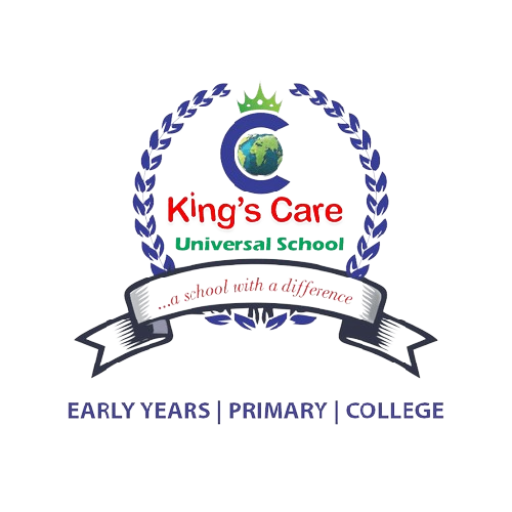
Succeed in Nigerian Schools? In Nigeria, education is a top priority for most families — and rightfully so. Every parent wants to see their child excel in school, score high grades, and eventually pursue a successful career. As a result, many parents turn to extra lessons, private tutors, and after-school programs to give their children an edge. But here’s the truth: while extra lessons can be helpful, they are not the only path to academic excellence.
Not every family has the budget, time, or logistics to support extra classes. Between work commitments, transportation stress, and financial limitations, it’s understandable why many parents seek alternatives. The good news? Your child can still succeed in school without the need for costly extra lessons — and we’re here to show you how.
With the right environment at home, consistent habits, and smart strategies, your child can thrive academically within regular school hours. In this article, we’ll walk you through 10 practical, relatable, and highly effective tips specifically tailored to the Nigerian education system. These are real-life solutions that any parent — regardless of background — can apply to help their child build discipline, confidence, and long-term success.
Let’s dive into how you can help your child succeed in school — the smart, sustainable way.
1. Create a Dedicated Study Space at Home: Succeed in Nigerian Schools
A quiet, well-lit study area can make a huge difference in your child’s focus. Having a specific place to read, do homework, or revise helps reduce distractions and builds a study routine. A simple desk, chair, and shelves for books are a great start.
2. Encourage Daily Reading to Succeed in Nigerian Schools
Reading is the foundation of all learning. Encourage your child to read daily — storybooks, newspapers, or even school notes. Make it a bonding time by reading with them or asking questions about what they read.
3. To Succeed in Nigerian Schools, Set Realistic and Clear Goals
Help your child set simple academic goals, like completing assignments early, improving handwriting, or scoring better in maths. This builds confidence and gives them a reason to strive every day.
4. Support Consistent Homework Habits to Succeed in Nigerian Schools
Instead of waiting until bedtime, create a fixed time for homework each day. Help them understand the importance of doing their homework by themselves. This habit goes a long way in helping them succeed in school.
5. Make Use of Free Online Resources to Succeed in Nigerian Schools
There are many Nigerian-focused learning platforms like Ulesson, SabiTeach, and YouTube channels with educational videos for JSS and SSS students. Kings Care Universal School also recommends students use the interactive resources we provide via kingscareschool.org to reinforce classroom learning.
6. Talk About Their School Day to Succeed in Nigerian Schools
Create time to ask your child what they learned each day. Ask them to explain a new topic in their own words. This reflection helps with memory retention and builds their confidence to speak up in class.
7. Build a Relationship with Their Teachers
Regular communication with teachers helps you understand your child’s progress and areas needing support. Attend PTA meetings, ask for feedback, and get involved. Teachers are your allies in helping your child succeed in school.
8. Create a Flexible but Consistent Study Plan to Succeed in Nigerian Schools
A timetable tailored to their school subjects can guide your child through their study sessions. Don’t overload them – keep it flexible but consistent. Include breaks, playtime, and screen-free zones.
9. Teach Responsibility Through Chores
It might seem like a simple thing—asking your child to sweep the floor, set the table, pack their school bag, or feed the family pet. But these small responsibilities are powerful tools for shaping character. Giving your child age-appropriate tasks at home is more than just getting a helping hand; it’s an intentional act of teaching discipline, accountability, and independence.
When a child learns to take care of little things at home, they begin to understand what it means to contribute, to follow through, and to take ownership of their actions. They start to realize that their effort matters. And this isn’t just about chores—it’s about preparing them for life.
Why does this matter for school? Because responsibility is a transferable skill. A child who learns to tidy their room or take care of their younger sibling is also learning to organize their books, complete assignments on time, and stay focused in class. These values—structure, follow-through, self-discipline—don’t just stay at home. They show up in the classroom, in group work, in test prep, and even in leadership opportunities.
We often talk about raising academically strong children, but emotional and personal responsibility is the foundation of long-term success. A student who understands discipline will manage time better. A child who is held accountable at home is less likely to make excuses in school. These qualities build not only high-performing students but also future professionals, leaders, and innovators.
The best part? You don’t need fancy programs or expensive tutors to teach this. It starts with trusting your child enough to give them tasks, and guiding them with love and patience. Even if they don’t get it right the first time, what matters is the consistency of the lesson. Over time, the results are transformative.
So next time you think, “It’s quicker if I just do it myself,” pause and think again. That small moment could be the seed of a lifelong habit. You’re not just giving your child a task—you’re giving them the mindset to succeed.
At Kings Care Universal School, we believe the home is the first classroom. That’s why we encourage parents to raise leaders, not just students. Every mop held, every dish washed, every backpack packed without being told is a step toward raising a child who is ready—not just for school, but for life.
10. Recognise and Celebrate Every Win to Succeed in Nigerian Schools
Did your child score well in a test? Did they complete their homework without being reminded ten times? These may seem like small wins in the grand scheme of things, but in the life of a growing learner, they are huge milestones worth celebrating.
As parents, teachers, or guardians, it’s easy to focus on the big goals—passing exams, winning awards, or moving up in class. But we must never underestimate the power of positive reinforcement. Recognising small achievements fuels motivation, boosts self-esteem, and creates a lifelong love for learning. When children see that their efforts are noticed and appreciated, they become more confident in their abilities. And confidence, especially in a child, is one of the most powerful tools for long-term academic and personal success.
Think about it—how do you feel when someone notices the effort you put into your work or praises your consistency? It feels good, right? Children are no different. In fact, they need it even more. Every “well done,” high five, or simple acknowledgement plants seeds of discipline, resilience, and pride. These seeds grow into habits that help them succeed—not just in school, but in life.
You don’t need to buy a gift or throw a party. Sometimes, all it takes is a smile, a heartfelt “I’m proud of you,” or a reward as simple as an extra 30 minutes of screen time. These small gestures tell a child, “I see you. I believe in you.” That message sticks. It shapes how they see themselves and encourages them to keep striving—not out of fear or pressure, but out of a genuine desire to do well.
And here’s the beauty of it: with the right encouragement, many children don’t need extra lessons to excel. They just need support, structure, and recognition. Instead of pushing with pressure, pull with praise. When learning becomes something associated with achievement and joy, not stress and punishment, children take ownership of their success.
So whether you’re a parent, an older sibling, a guardian, or even a curious student reading this, remember: progress is progress, no matter how small. Celebrate it. Speak life into it. Build on it. That’s how champions are raised—not overnight, but one encouraging moment at a time.
At Kings Care Universal School, we strongly believe that academic success doesn’t begin in the classroom—it begins at home. A child’s journey to excellence is shaped not only by the lessons they learn during school hours but also by the habits, support, and values they build at home. We understand that every child is unique, with different strengths, challenges, and learning styles, and our goal is to help each one reach their full potential by working hand-in-hand with families.
You don’t need to be wealthy or have access to elite tools to raise a high-performing student. What matters most is consistency, encouragement, and the kind of learning environment that nurtures curiosity, discipline, and self-belief. Simple habits like dedicated homework time, open conversations about school, and a positive attitude toward learning can go a long way in transforming a child’s academic experience.
At Kings Care, we partner with parents to ensure that the bridge between home and school is strong and supportive. We provide not only a solid academic foundation but also a learning environment where students are taught how to think, create, and lead. Our curriculum includes hands-on digital literacy, entrepreneurship, and even early website development, because we know how important it is for children to be prepared for the future. This is why our students are already building websites and learning modern tech skills—real-world abilities that position them ahead of their peers.
We believe that education should be holistic, affordable, and empowering. No matter your background or circumstances, your child can succeed—and we’re here to guide that journey every step of the way.
So as you make decisions about your child’s education, remember: success doesn’t require perfection—it requires intention, support, and a school that sees your child’s full potential.
If you’re looking for a school that truly partners with parents and believes in the power of early excellence, visit us at Kings Care Universal School. We’re more than just a school—we’re a family, a community, and a launchpad for future leaders.
Want more practical parenting and education tips? Visit our blog at kingscareschool.org or follow us on our social platforms for updates!




